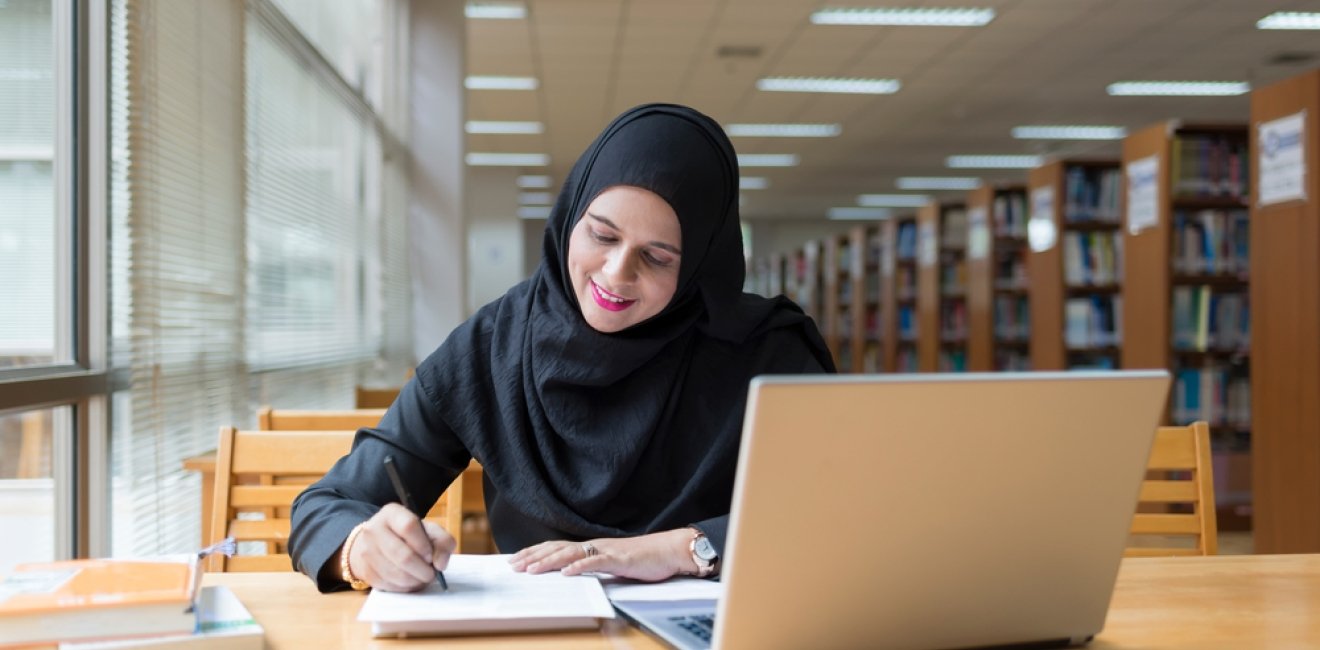Pashtana Durrani: An Afghan Educator Running an Underground School for Girls
Sola Mahfouz features another champion of education, Pashtana Durrani, who runs an underground school for girls in her home of Kandahar, Afghanistan.

A blog of the Middle East Women's Initiative
Sola Mahfouz features another champion of education, Pashtana Durrani, who runs an underground school for girls in her home of Kandahar, Afghanistan.

“I want every student to be a leader,” Pashtana declares, her voice a blend of determination and dreams. “In the coming years, we shall witness the rise of thousands of independent girls, each a loudspeaker for their rights, echoing across the world.”
Most of us talk, but few actually take action. Pashtana Durrani, a courageous young educator, is one of those few. In 2018, Durrani, now a Wellesley College Fellow and M.Ed. candidate at Harvard’s School of Education, founded LEARN Afghanistan, a non-profit organization that provides quality education, healthcare, and resources to communities in Afghanistan. Pashtana’s indomitable spirit inspires many Afghans, and her underground school gives new life to many girls who are now forbidden to continue their education after the Taliban ban.
Her activism resonates not through loud proclamations but through the quiet strength of knowing the land and its people, providing not just aid but empowerment. In her book talk, “Last to Eat, Last to Learn,” at Harvard Book Store she discussed her school.
“I want every student to be a leader,” Pashatana declares, her voice a blend of determination and dreams. “In the coming years, we shall witness the rise of thousands of independent girls, each a loudspeaker for their rights, echoing across the world.”
Durrani envisions a future where her students, a legion of strong-willed girls, emerge as champions of their own destinies.
Running an underground school is not an easy task. Every day, the Taliban wakes up and finds one more creative way to oppress women. So far, they have issued over 75 edicts stripping Afghan women of their rights. Moreover, the precarious security conditions in the country further challenge the operation of the school.
“We received an alert that it was an ISIS target, and we had to make the parents aware and then relocate the schools,” said Pashtana at her book talk.
It made me think about the hunger there is for knowledge; despite the Taliban ban and the threat of ISIS, parents still send their daughters to school, female students still choose to attend and learn, and teachers still teach.
I know from my own experience that when schools are open, education can be a normal part of life—it can be taken for granted. When it is forbidden, it becomes sacred and obtaining it becomes the ultimate form of defiance.
Another remarkable thing about Pashtana is that she doesn't just instruct from the safety of America; every few months, she goes undercover and visits her schools in Afghanistan to ensure they are running effectively.
A few months ago, I talked to my nieces in Kandahar. They recounted their life stories after the Taliban takeover, describing feeling suffocated and dreaming of going to school. Yet, doors were closed to them. Their young hearts were full of despair.
After attending Pashtana's talk last month, I called my nieces and told them about her school, asking if they would like to enroll. They immediately said yes. Pashtana helped them enroll without delay. Just one day after starting school, their hopes were restored; they were rejuvenated as if a new life had been breathed into them. Think about the many girls that Pashtana is helping, giving meaning to their lives.
While we may not all be Pashtana, we can unite and find creative methods to offer support to Afghan women and girls. Just as the Taliban invest considerable effort into oppressing women, we should channel an equal amount of energy into aiding them. An initial step could be to bolster Pashtana’s efforts at LEARN or read her book, "Last to Eat, Last to Learn: My Life in Afghanistan Fighting to Educate Women,” to know more about her and her work.
While Kandahar may have been known as a city of dust and the birthplace of the Taliban, it is time to know the Kandahar we see through Pashtana Durrani, her tremendous efforts, and the girls she is educating, inspiring, and empowering every day.
The views expressed in these articles are those of the author and do not reflect an official position of the Wilson Center.


The Wilson Center’s Middle East Program serves as a crucial resource for the policymaking community and beyond, providing analyses and research that helps inform US foreign policymaking, stimulates public debate, and expands knowledge about issues in the wider Middle East and North Africa (MENA) region. Read more


The Middle East Women's Initiative (MEWI) promotes the empowerment of women in the region through an open and inclusive dialogue with women leaders from the Middle East and continuous research. Read more



